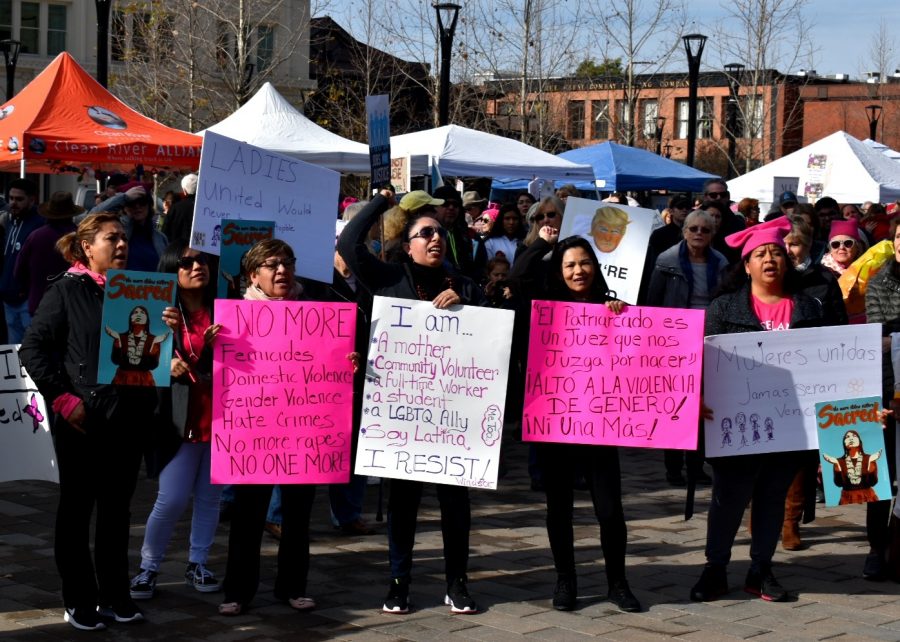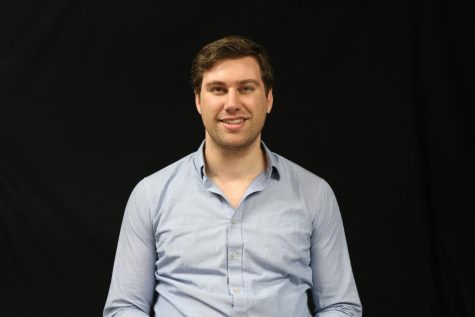The third annual Santa Rosa Women’s March brought together a diverse group to rally for reproductive and equal rights for women, advocate for freeing asylum seekers and protest the Trump administration’s lack of action on climate change.
Hundreds of people of varying gender identities showed up at Old Courthouse Square on Jan. 18 to listen to a series of speakers before marching through downtown Santa Rosa in partnership with events taking place across the country.
“I was empowered by how many people my age are standing up just like I am,” said Casa Grande High School student Lindsey Warner, 16. This was Warner’s second Women’s March. She was amazed by the turnout of like-minded protesters of her own age.
The speakers who received the biggest applause were high school students Rima Makaryan, creator of The Butterfly Project; Adri Kornfein, Junior Commissioner on Sonoma County Commission on the Status of Women; and Noa Polston Schwartz, founder of the nonprofit Teach Climate and Redefine It. Together they delivered a message of fighting back against the status quo.
“I am sick and tired of people in power who aim to regulate women’s bodies and choices,” Kornfein said. “It’s my body, my choice!”
As a self-proclaimed feminist, Polston was deeply upset that some people within the modern women’s movement say it has gone too far. She disagrees because she believes there is so much work to be done to achieve true gender equality.
“We must continue battling,” Polston said. “Whether it’s through climate, economic, indigenous or racial justice, there is so much work to do.”
Other speakers included Women’s March event coordinator Leslie Graves; Les Enfants Baobab founder Jackie Elward; California Teacher of the Year Katya Robinson; and Sonoma County Sunrise movement organizer Christine Byrne. Opening for the speakers was religious singer Jacquelyne Ocaña featuring The Prayer Chapel Singers.
The Women’s March is unique in that its focus is decentralized; protesters highlight different issues but feel a synergy between them.
Undocumented German immigrant Susanne Lake participated in the event to protest the detention of migrant children at the U.S. border. Because she empathizes with their plight, Lake created an organization to support those children and their families. She said women are the key to freeing the children.
“[Women] are compassionate. [Women] come from the heart. And the only thing that is going to heal this country and heal this world is love,” Lake said.
Alexandra Korin, a 62-year-old Sonoma County physician, was moved most by the event’s Native American rights advocacy, something not usually covered in the media. Despite her positive attitude about the march itself, Korin was concerned that society has regressed in the past three years during the Trump administration.
To reverse that slide, National Women’s History Alliance founder Molly Murphy MacGregor used the women’s suffrage movement to encourage the crowd to vote in November.
“In 1911, California women won the right to vote on average of one vote per county throughout the state,” MacGregor said. “Your vote counts. Please use it — and register everyone you know.”




